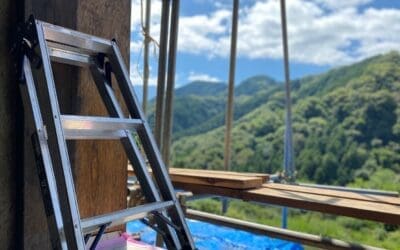How Private Sector Initiatives and Vacant Properties Empower Rural Communities
In Japan’s countryside, public-private toleration is the new frontier of rural development. By allowing private initiatives room to innovate, governments enable transformative projects on vacant properties, creating jobs and community vitality.
This model of public-private toleration builds on insights from the Japan Times piece profiling the Regional Revitalization Corps in Takahama and Fukui (Regional Revitalization Corps).
Explore our project showcase and learn how public-private toleration can unlock potential in your region.
Challenging the “Revitalization” Paradigm
The term “revitalization” often conjures images of a return to a mythical past. Many regions, like Fukui Prefecture, never experienced broad economic vibrancy to reclaim. Instead, modern challenges demand forward-looking models that align local strengths with market opportunities.
Governments can provide streamlined infrastructure and seed funding, but long-term impact hinges on private creativity, investment and operational expertise. This synergy defines public-private toleration.
Exploring the Range of Possibilities
In rural settings, possibilities span from adaptive reuse of vacant properties to high-tech agriculture platforms that converge local tradition with modern efficiency. Abandoned merchant houses can become guesthouses offering immersive experiences while former warehouses transform into artisanal breweries. Meanwhile, smart greenhouses and vertical farms harness IoT sensors and renewable energy to boost yields on limited land.
Community co-working spaces represent another frontier. By retrofitting disused school buildings or local halls, these hubs provide remote workers and entrepreneurs with reliable internet, meeting rooms and event spaces. Such venues spark cross-pollination of ideas, enabling digital nomads to settle temporarily while contributing skills to local cooperatives.
Social enterprises further expand possibilities by mapping unused parcels and matching them with emerging businesses or cultural initiatives. From pop-up galleries to youth-led maker spaces, these projects encourage residents to reclaim unused land as platforms for education, arts and community festivals. This kaleidoscope of options underlines the versatility of private-led approaches.
Case Studies of Private-Led Impact
Kasamatsu Farms harnesses abandoned rice paddies as community-supported agriculture plots, directly selling weekly vegetable boxes to subscribers. Hands-on workshops and volunteer programs build local skills, foster social ties, and generate reliable income streams.
[/aioc_card_carousel_item][aioc_card_carousel_item title=”Mominoki Lodge” subtitle=”Minakami, Gunma” content_length=”300″ show_button=”on” button_text=”Book Your Stay at Mominoki Lodge” button_url=”https://www.booking.com/hotel/jp/mominoki-lodge-47-pensiyonmominomu-minakamiting.html” button_url_new_window=”on” _builder_version=”4.27.4″ _module_preset=”default” border_radii=”on|5px|5px|5px|5px” global_colors_info=”{}” theme_builder_area=”post_content”]Mominoki Lodge transformed a vacant guesthouse into an eco-conscious mountain retreat with solar-powered cabins and locally sourced cuisine. Guided river rafting and artisan workshops provide authentic experiences while creating sustainable employment year-round.
[/aioc_card_carousel_item][aioc_card_carousel_item title=”Vanguard Backpackers” subtitle=”Sagamihara, Kanagawa” content_length=”300″ show_button=”on” button_text=”Follow Vanguard on Instagram” button_url=”https://www.instagram.com/vanguard_backpackers/?hl=en” button_url_new_window=”on” _builder_version=”4.27.4″ _module_preset=”default” border_radii=”on|5px|5px|5px|5px” global_colors_info=”{}” theme_builder_area=”post_content”]Vanguard Backpackers reimagines the owner’s grandfather’s house into a welcoming co-living hostel with co-working spaces and cultural exchange events. Digital nomads and travelers support suburban Sagamihara’s economy while enjoying collaborative, community-driven hospitality.
[/aioc_card_carousel_item][aioc_card_carousel_item title=”Lefty’s Pizza” subtitle=”Takahama, Fukui” content_length=”300″ show_button=”on” button_text=”Check Out Lefty’s Website” button_url=”https://www.leftysnypizza.jp/” button_url_new_window=”on” _builder_version=”4.27.4″ _module_preset=”default” border_radii=”on|5px|5px|5px|5px” global_colors_info=”{}” theme_builder_area=”post_content”]Lefty’s Pizza occupies a beachside house and serves some of the best New York-style pizzas topped with fresh produce. Open community gatherings engage tourists and residents alike
[/aioc_card_carousel_item][aioc_card_carousel_item title=”Playground of Hope” subtitle=”Nationwide” content_length=”300″ show_button=”on” button_text=”Learn More about the Playground” button_url=”https://poh.ngo” button_url_new_window=”on” _builder_version=”4.27.4″ _module_preset=”default” border_radii=”on|5px|5px|5px|5px” global_colors_info=”{}” theme_builder_area=”post_content”]Playground of Hope converts unused lots nationwide into safe, inclusive play parks for children. Local volunteers and councils collaborate on design and maintenance, tailoring each park to community needs and renewing neglected properties across Japan.
[/aioc_card_carousel_item][/aioc_card_carousel]Several principles unite these initiatives, revealing why some projects thrive while others falter. Identifying these factors helps guide future endeavors toward lasting rural development.
Key Success Factors for Public-Private Toleration
A few common threads emerge across these case studies, illustrating essential elements that consistently drive success in rural initiatives. Recognizing these patterns helps stakeholders replicate and adapt effective strategies in diverse contexts.
Tied Incentives: profit-sharing tourism ventures directly support community goals.
Lean Contracting: flexible agreements minimize red tape.
Asset Leveraging: grounding projects in local culture and nature.
Capacity Building: training programs ensure skill transfer.
Scalable Pilots: clear pathways to replication and expansion.
Public Sector’s Enabling Role
Japan’s Ministry of Internal Affairs and Communications promotes PPP guidelines to ensure private investments yield local jobs and skill development. Meanwhile, the “One Village One Product” movement demonstrates how regional branding can spread across Asia.
Beyond guidelines, local governments can pilot regulatory sandboxes that allow experimental projects to test new business models, such as simplified leasing for vacant properties or tax incentives for community-driven ventures. These efforts reduce barriers and encourage innovative solutions tailored to each locale.
Deep Dive: Policy to Practice
National programmes like the Regional Revitalization Corps offer salaries and placement support but often lack mechanisms to sustain ventures once funding ends. Embedding private operations—rather than relying solely on government staffing—ensures projects adapt to market signals.
For enduring rural development, local authorities must act as facilitators by providing land leases, basic infrastructure upgrades and streamlined permitting. Day-to-day operations belong to entrepreneurial partners.
Independent oversight bodies can track outcomes—employment growth, income metrics and service access—and adjust incentives accordingly.
Recommendations and the Path Forward
Drawing from the successes and challenges outlined above, we propose actionable guidelines for aligning incentives, streamlining processes, and ensuring private innovation thrives alongside public objectives.
- Governments should offer seed grants and digital infrastructure like rural 5G backhaul without micromanaging daily operations.
- Private firms must co-invest in local training and collaborate with NPOs to extend reach.
- Vacant properties should become launchpads for mission-driven enterprises anchored by shared vision and transparent governance.
Let's Talk Action
By embracing public-private toleration, Japan can move beyond nostalgic “revitalization” rhetoric and foster genuine rural development. Private sector innovation—whether through agritourism, eco-farming or heritage hospitality—provides the sustained momentum rural areas need.
Vacant properties transform from symbols of decline into engines of growth, and communities gain sustainable livelihoods. This cooperative model charts a new path for Japan’s countryside resurgence.



